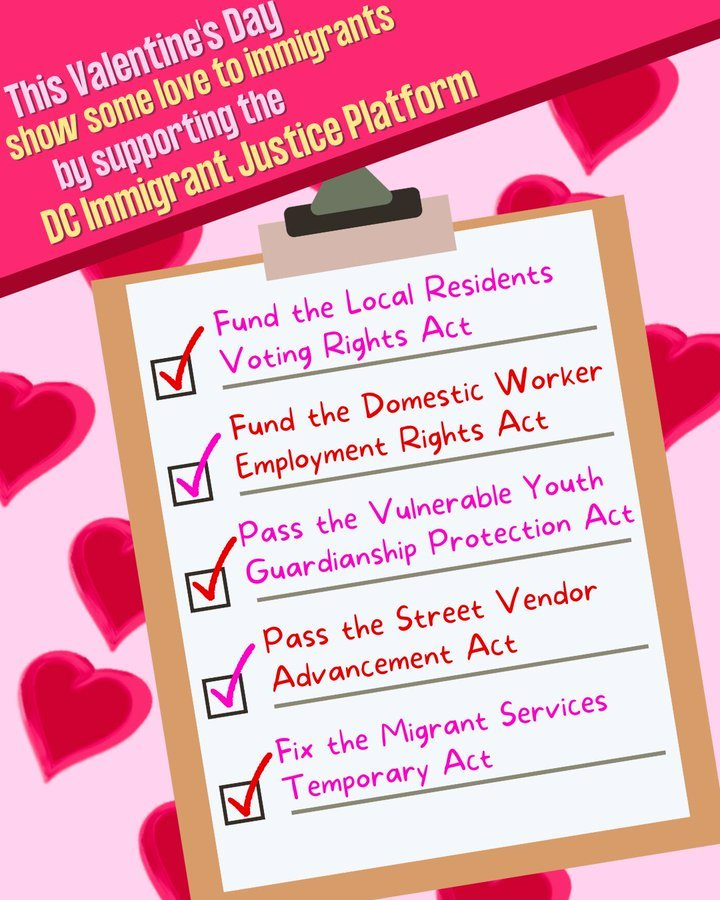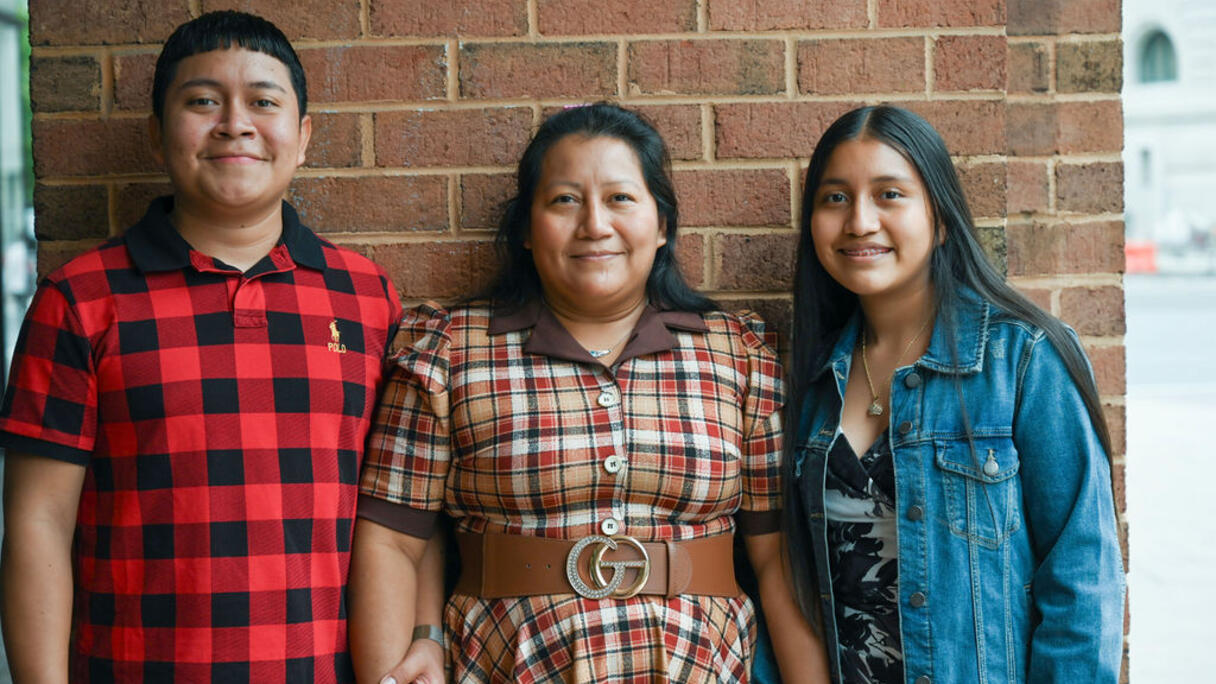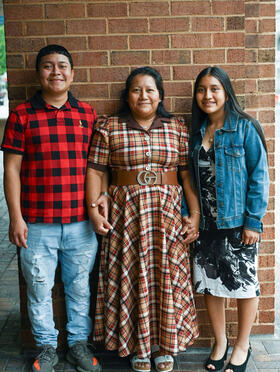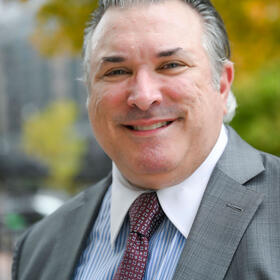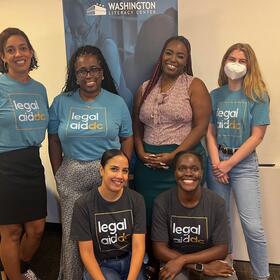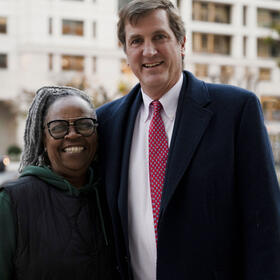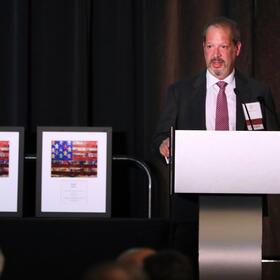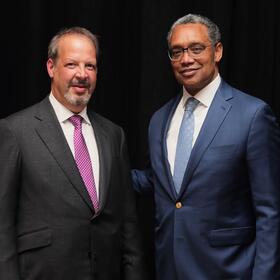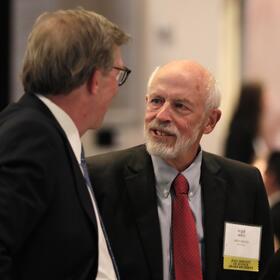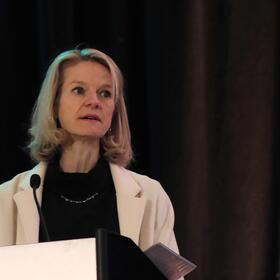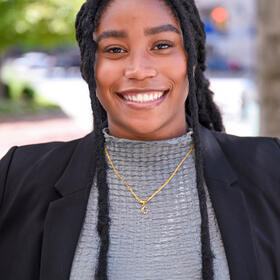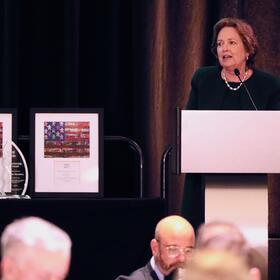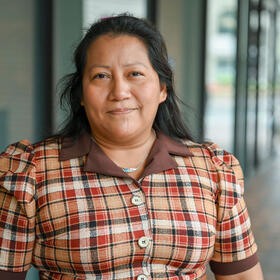
Magnolia Alvarez Velasquez immigrated to the United States from Guatemala about 15 years ago, leaving her two small children, Douglas and Kenia, behind to try to provide a better life for them. She started a successful tamale stand in Mt. Pleasant, got remarried, and was eventually joined by her children in DC.
“It’s really sad having to leave your country and children when they’re so young and so small,” she said. “When you’re a mom, you give everything for your children. I killed myself working daily so they wouldn’t need anything over there.”
Despite their joy at reunification, their immigration status was uncertain, and Ms. Alvarez Velasquez came to Legal Aid for help. Our Immigrants’ Rights Legal Services Project provides legal assistance in a variety of immigration matters, with a focus on problems that intersect with our other practice areas, especially family law and domestic violence.
Legal Aid attorney Julia Ward took the case. Children who have been abused, abandoned or neglected by a parent, and are therefore not able to return to their home country, are eligible for Special Immigrant Juvenile Status (SIJS). Once granted, SIJS can lead to legal permanent residency. Kenia, now 17, was eligible, but first Ms. Alvarez Velasquez needed legal custody.
In the custody case, Kenia testified that her father had neglected her and left her to fend for herself, and about how grateful she was to escape the instability of her family situation in Guatemala. Ms. Alvarez Velasquez also took the stand, and testified about the importance of keeping their family together in the United States and the sense of safety and joy that resulted from their reunification in DC. The judge granted Ms. Alvarez Velasquez’s request for custody, clearing the way for Kenia to apply for SIJS.

Meanwhile, Julia helped Douglas, now 22, successfully apply for a work permit, which has allowed him to work and help support his family now that he has graduated high school.
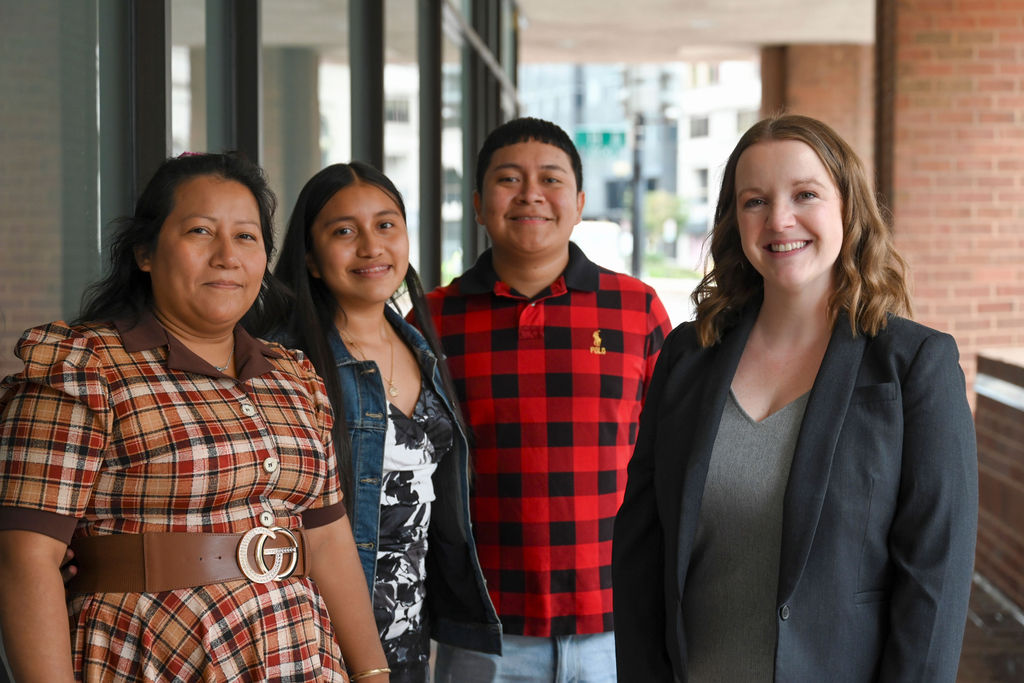
Through our Systemic Advocacy and Law Reform program, we seek to learn from the stories of our individual clients and the broader community to make lasting and systemic change in the District. Ms. Alvarez Velasquez was eager to get involved.
Decriminalizing street vending was a top priority for Ms. Alvarez Velasquez, her husband German Trinidad (who operates the tamale stand with her), and many other DC immigrants. Beyond accruing fines for vending without a license, the threat of law enforcement intervention caused significant stress, especially the fear of impact to immigration status.
“Our problem is that we’re immigrants in this nation and we cannot have a better job than to be the street vendor,” Mr. Trinidad told DCist for a report published last November. “But we wish you and all your legislation will be able to help us to get ahead so that we don’t become stagnant, so that we don’t become penalized for selling on the street. That’s the only thing we want.”
The proposed Street Vendor Advancement Act eliminated criminal penalties for vending without a license, allowed the Mayor to waive unpaid fines, and established sidewalk vending zones.
Legal Aid helped form the DC Immigrant Justice Platform, a united effort by immigrants and immigrants’ rights groups to champion several local policy initiatives that would benefit DC’s immigrant community, including the Street Vendor Advancement Act.
Legal Aid Policy Counsel Jen Jenkins organized a lobby day around the DC Immigrant Justice Platform, bringing former clients to Council offices and encouraging them to share their stories of discrimination and harassment, but also how street vending allows them to make ends meet, provide for their families, and create a sense of community and culture in their neighborhoods. And when the Council heard public testimony about the Street Vendor bill, Ms. Alvarez Velasquez testified about her experience and advocated for her right to earn a living without harassment and prejudice.
As a result of this advocacy, the Council passed the Street Vendor Advancement Act in April 2023.
